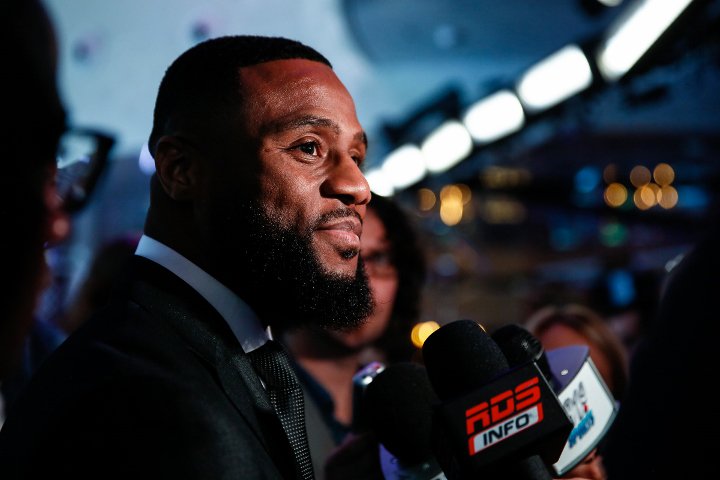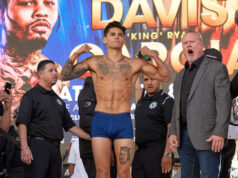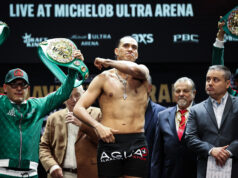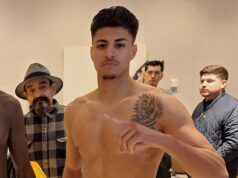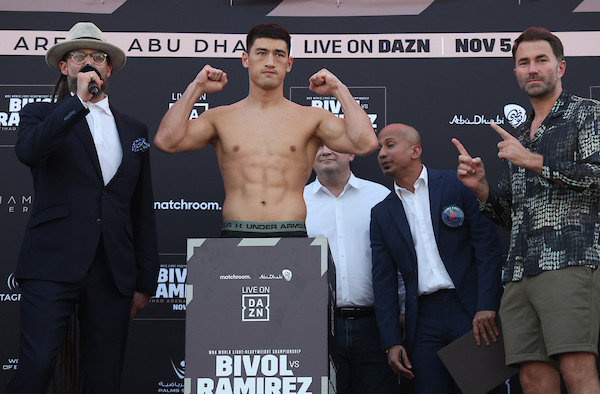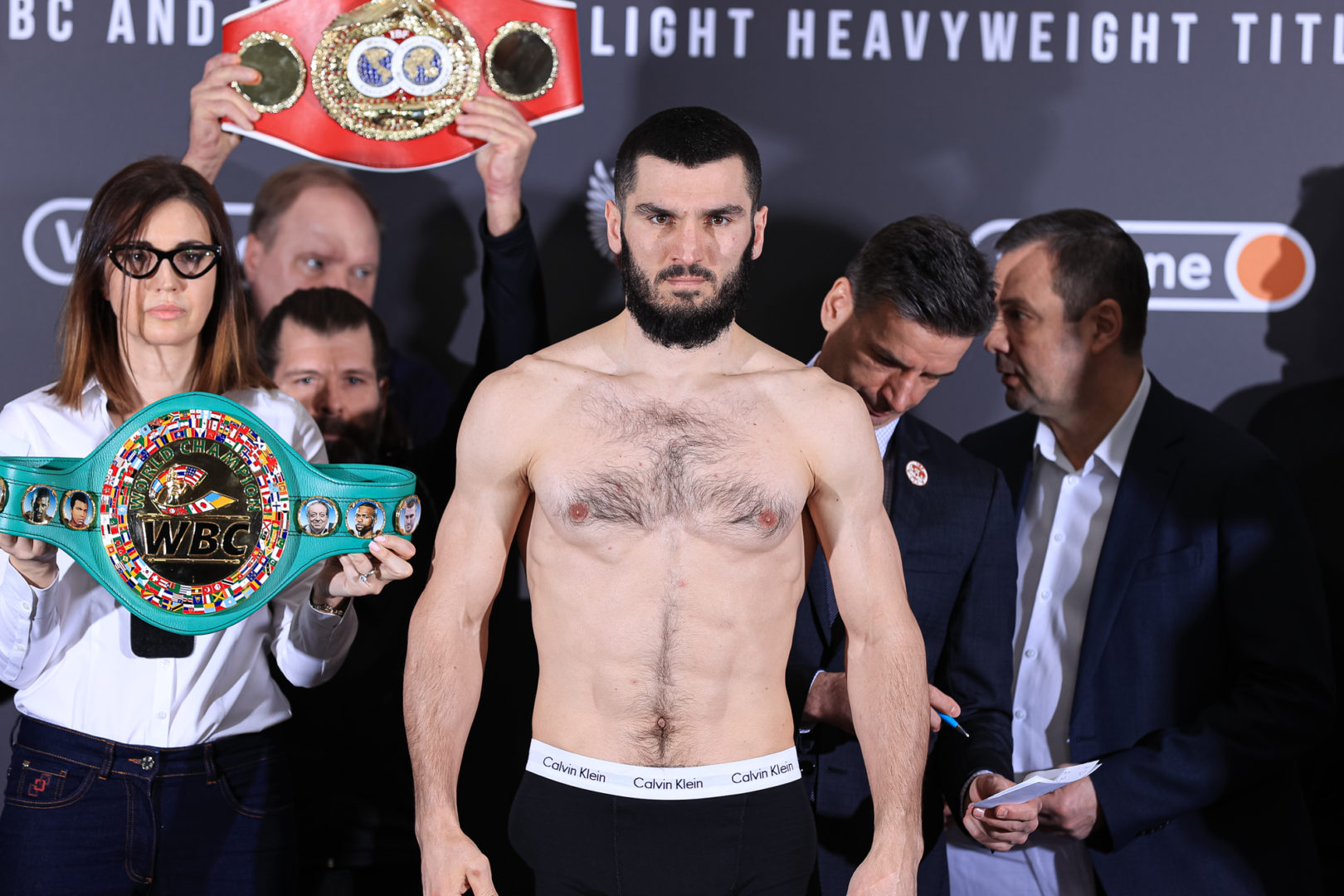By Jimmy Tobin-

There was an infomercial of sorts at the Bell Centre in Montreal, Quebec, Saturday night. In a rematch undesirable and undesired, Adonis Stevenson did away with Andrzej Fonfara in brutal fashion, requiring but twice the time a part-time construction worker needed one year ago. If ever you needed proof that Stevenson remains a bridge too far for Fonfara…ah, but you didn’t need such proof did you? Stevenson remains one of the best fighters in the division, your eyes can tell you that. Yet however successful, his has been a forgettable reign (which should sit just fine with a promoter who can keep Deontay Wilder belted).
If the broadcast was salvaged at all from relegation to the formality scrapheap (which is not to suggest it was) the co-main is to thank. There, Jean Pascal fought off yet again the creeping shadows of irrelevance in dropping a majority decision to Eleider Alvarez. True to form, Pascal left a little more of himself in the ring; and while what remains of him can barely be stretched effectively over three minutes let alone twelve rounds, it was enough to make a showboat, not a killer, of Alvarez. Pascal succeeded then, in making Alvarez look mediocre—which is audition enough for Alvarez to become the ninth successful defense of Stevenson’s title.
But a Stevenson hit piece this is not, at least not quite.
“Superman” made clear his intentions in 2015—after another two-hour infomercial—when an HBO microphone was put in his face with the expectation that he would utter a specific name and Stevenson swerved. Offer whatever apologies you wish, attribute blame wherever you like—that moment encapsulates Stevenson’s championship run, his conduct since then only reinforces the message, and no number of Fonfaras, Sukhotskys, and Karpencys, however savagely chilled, will convince people otherwise.
He is fighter enough to change all of that with a left hand on the right chin and to suggest he is anything less is to watch him with more than your eyes. The number of light heavyweights who can absorb Stevenson’s Sunday punch may not be exceeded by the number of fighters who can keep him from landing it. He knocked cold the only man to beat him, has gotten off the canvas to win, and responds to adversity as the fighter with greater firepower should, which means that Stevenson, if matched as a champion should be, will provide many a spectacle. He remains a nightmare proposition, but for the opponents that matter only ever a proposition.
That is something that cannot be said of Pascal. Nor was it ever really said of him, there being so few stretches in his career when he was not trying himself against men able to find him wanting. He faced another such opponent in Alvarez and watching Pascal lay on the ropes setting transparent traps, winging counter left hooks too slow to land, lunging with lead crosses carried on unsteady legs, provided the only compelling action on Saturday. Barring the lone scorecard meant to preserve him as a viable future opponent for Stevenson, Pascal’s efforts were more endearing than effective. That has been true for a few nights over his career, one that is marked more by high profile losses than victories.
It is easy to romanticize and recast aging fighters, to allow a more charitable view of them the more punishment they absorb; even the objectionable ones seem less so in their increasing absence. Pascal is as deserving as any of such a treatment, and should likely be treated to it the next time a younger, stronger man shortens his night. Yet that reimagining is unnecessary. There is almost always drama in a Pascal fight because he is an athlete above all else, which has resulted in a fighter who takes a goodly amount of punishment and responds by trying to light up everyone in front of him. Nor do you get shorted on toughness with Pascal. Take a break from defending Kell Brook and revisit the night Pascal turned back a then-rampaging Adrian Diaconu while fighting nine rounds with a broken bone in his shoulder.
No, Pascal has never quite been elite, evidenced by his record against Bernard Hopkins and Sergey Kovalev (a meager 0-3-1 with two stoppage losses), but such are the consequences of flying too close to the sun. A sober appraisal of his time in the ring cannot be anything but complimentary, and of the two Haitian-Canadians on the broadcast Saturday, it is Pascal whose career is most endearing. It is also the one more difficult to replicate (an unfortunate reality considering that boxing would be better off for having dozens of Pascals). Again, this is not to romanticize his career, only to suggest to remember it accurately. Pascal has long suffered from mischaracterization.
Entertaining at something approaching the highest level, Pascal never shied from a challenge, never shied even, from a beating, and more and more those seem like fundamental criteria worth evaluating a fighter by. Where a fighter ranks in his division, how many titles he’s won, how often he has defended them, his standing with a major network or promoter, even how many tickets he sells—all of these details can mislead. And if there is anything to be learned from the proliferation of televised boxing in recent years it is that restricting your viewing to those fighters who are earnest and able in their violence, those who with some frequency place themselves in contests where the outcome is unclear at the opening and subsequent bells, deprives you of little.
Still, even if boxing is becoming more and more concerned with fabricating instead of cultivating excellence, it feels foolish to suggest that Pascal is the last of a dying breed. Such platitudes are out of place in a sport as resilient as ours—there will always be a need for men like Pascal, and those men will be found. This one feels right though: the spent bullet is preferable to the spare one.


